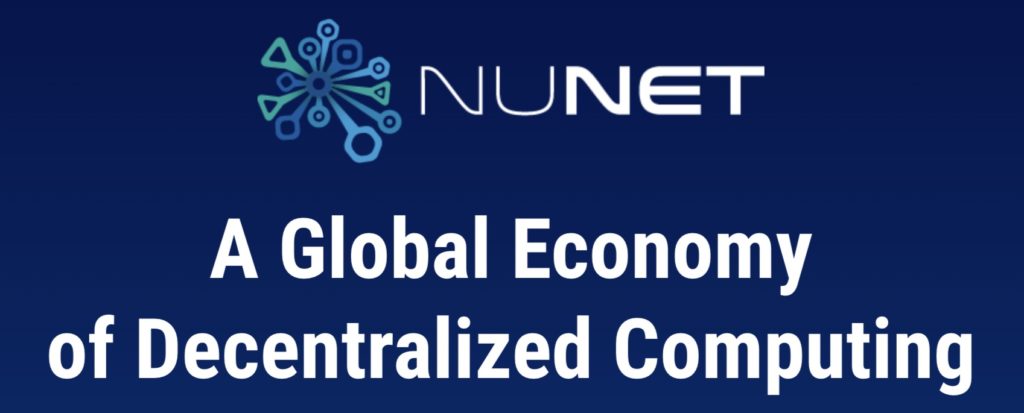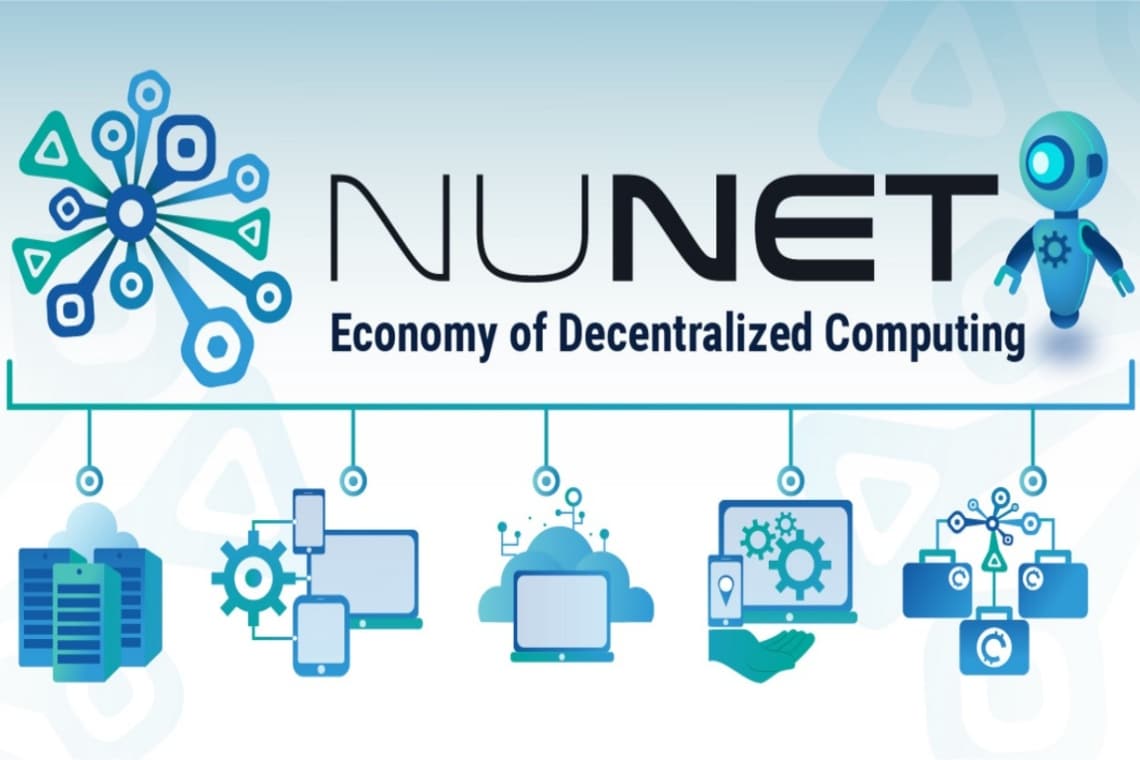In the following interview with the co-founder of Nunet, Dr Kabir Veitas, we explored the topics of decentralization, AI and interoperability.
Summary
Interview with Dr Veitas from Nunet

Glad to have you here Dr Veitas. Please introduce yourself, what is your background and how did you get involved in the blockchain space?
My name is Kabir Veitas, I am CEO & Co-founder at NuNet.
Formerly, I held a position of AI Researcher at SingularityNET, before that – a strategic business consultant, executive and manager; I hold Master degrees in International management, and Artificial Intelligence and an interdisciplinary Phd in Artificial General Intelligence / Distributed computing.
I got involved in the space early-on from 2013-15, mostly from the computer science perspective. I was in academia back then researching AI, AGI, collective intelligence, building actor systems for decentralized synthetic AI. I met other co-founders, started research together which culminated in AI research at SingularityNET and established the NuNet spinoff based on that, incubated by SingularityNET from 2019 until launch at the end of last year.
What is Nunet? And what problems does it aim to solve?
We are building a global economy of decentralized computing. Basically, this means that we aim to connect all computing resources of the world, irrespectively of who owns them, into a single network where computers, mobile phones, cars, robots, game consoles, you name it, could interact and run open source and proprietary code. Most importantly, we are building a tokenomics layer which allows all these parties to get compensated for their contribution of value added to the apps running on the network.
In order to run AI models, currently we need to pay oligopolistic market players, clouds, etc. There is a lot of latent computing power scattered around in the computing devices owned by persons / small businesses and the like. These resources can be optimized to run many computing processes, volunteer computing, data aggregation from different physical locations and more. We are building protocols, APIs and languages for decentralized components of the computing processes to enable just that.
The value flows between algorithms, AI agents, applications, users, compute resources and data sources will be powered by the cross-chain native utility token NTX. See our whitepaper for more details.
Given your background in AI, can you share your thoughts on the AI race between Google, Meta (formerly Facebook) and other big tech? Can AI be decentralized?
This is the great dilemma we are facing. Since the rise of the internet in the 1990s, these big tech companies have been consolidating their power in the realms of online commerce, social media and, of course, monopoly over cloud computing resources. AI is involved in all of these to some extent, and as it becomes increasingly sophisticated, so do the ways in which these companies can ensure that they are indispensable to our society, blocking out all competitors. Of course these companies have almost unlimited resources to research and build AI as well as do heavy Machine Learning workflows which are simply not accessible for players with less resources.
A strong alternative to the generally monopolistic markets in cloud computing and AI with large data and computing silos historically was the open-source software movement, which allows to build and use software in a decentralized manner attracting thousands of developers (e.g. Linux, Apache Web server). Most software that is being developed now has at least some component of open source which proved to be the best way to interoperate between developers. SingularityNET + NuNet brings another dimension to this open source movement – together we are building a layer of interoperability allowing communities to build software in a decentralized way, run it on a decentralized network, owned by all and not controlled by anybody and to distribute the value created in the network to each constituent exactly as per their contribution.
Anyone will be able to contribute to the advancement of technology without it being owned or controlled by anyone. This is a crucial difference from the AI programmes built by big tech, because we will build decentralized AI, while big tech will build AI that is controlled in a central manner.
By extension, cryptocurrency does the same thing with money, being based on an open-source framework, which has the potential to break institutional control of online commerce. NuNet brings the same kind of decentralized solution to cloud computing, giving cheaper access to computational power from all and to all, as well as allowing anyone with a device to be a provider and reap the economic benefits previously only afforded to large corporations.
It’s becoming evident that interoperability is fundamental, how does Nunet fit into this narrative? What blockchain platforms are suitable to your needs?
Without interoperability one cannot have true decentralization. Efficient interoperability between decentralized components is critical to successful decentralization. The conceptual importance of interoperability and ability for each component of the platform to negotiate and choose other components is touched in the answer to the previous question. In technical terms, NuNet is a hardware-software microservice framework, which allows to run decentralized algorithms (AI services as microservices built by different developers and accessed from different applications) on the decentralized hardware (i.e. independent computers and clusters owned and operated by different individuals or companies). Most importantly, NuNet provides protocols and APIs for all these components to search for matches, negotiate communication, establish temporary assemblages for doing computing work, calculate value added by each component to final results and settle the tokenomic transactions between them for distributing that value.
In terms of blockchain, NuNet itself is not a blockchain, and is blockchain agnostic in a sense that it runs computing workflows off-chain but uses blockchains to establish the interoperability between AI services and machines. It can therefore send and receive data to and from any blockchain to accept payments or pay providers, essentially using blockchains as its settlement layer.
As mentioned earlier, NuNet’s utility token, NTX, is cross-chain, existing currently on the Ethereum network, and soon to be on Cardano as well, with other possible integrations in the future. This will allow users to pay for computing power on the blockchain of their choice, depending on which they prefer or which blockchain currently has the lowest fees and least scalability issues. The same goes for compute, data and application providers; they will be able claim NTX payments for their services on the blockchain of their choosing. Furthermore – and we are excited about that – NuNet will enable you to choose a blockchain dynamically, depending on the specific needs of a workflow (speed, cost, etc.) and even to leverage different blockchains within the same computational workflow.
Overall, NuNet aims to become a framework for grounding the crypto / blockchain space into the physical universe which will enable people to purchase real economic services (compute, storage, data, etc) using crypto!
Talking about Cardano, Nunet has a Project Catalyst proposal for Fund 7, can you tell us more about this?
NuNet’s proposal for Fund 7 is a project that is sorely needed by the Cardano community. Currently, nearly 57% of stake pool operators (SPOs) run their block-producing nodes on cloud computing services controlled by big tech companies. This poses a potential risk to the network in the case that these centralized services fail or forcibly remove stake pools from their platforms.
If approved for funding, NuNet will develop the infrastructure for SPOs to begin running block producing nodes on NuNet. Testing will first take place on hardware provided by our generous community members since the inception of the private alpha. Development will continue over the next several months in the lead-up to the launch of our public alpha, with the Cardano stake pool support being its flagship feature.
Thank you kindly for your time, anything else to add? Where can people learn more about Nunet?
Thank you! I am excited to share our vision and plans in depth. Please see more via the following links and join us.




